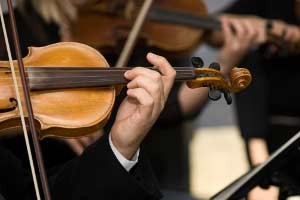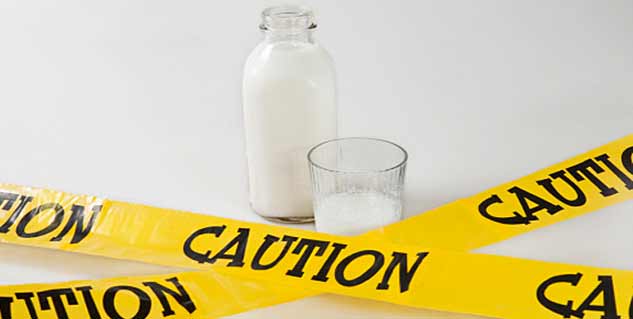The real cause of hearing loss and how to prevent it
 One of the most poignant true life stories may have given modern scientists and doctors the real reason behind hearing loss. This story is about a man who was very good at what he did. In fact, he was arguably the best in his chosen field. There was only one problem – when people applauded his work, he could not hear the applause.
One of the most poignant true life stories may have given modern scientists and doctors the real reason behind hearing loss. This story is about a man who was very good at what he did. In fact, he was arguably the best in his chosen field. There was only one problem – when people applauded his work, he could not hear the applause.
By now you might have figured out who I’m talking about – Ludwig Van Beethoven. The great 18th-century musician directed one violin concerto, one opera, five piano concertos, nine symphonies, 17 string concertos, and 32 piano sonatas in his short life.
Beethoven started losing his hearing when he was around 28-years-old. He had mild fluctuating deafness along with tinnitus (ringing in the ears). In the beginning, he hid his deafness (like we all do). But as time progressed, it became worse and more impossible to hide. In a letter to his close friend, he wrote, “My hearing (has) grown steadily worse for three years… My ears whistle and buzz continually, day and night.” By the time he was 45, Beethoven became stone deaf.
The reason for his deafness was highly researched and debated. Doctors tried to connect every single ailment he had – asthma, infection, tuberculosis, otosclerosis, his gout, nerve deafness, even a traumatic fall – to his deafness, but they were all ruled out for lack of supporting evidence.
But when he died, a postmortem revealed two significant findings: Cirrhosis of his liver and atherosclerosis of his auditory arteries.
The mystery of hearing loss solved?
This leads us to conclude that a lack of blood supply to the ear could have caused his deafness, and also the fact that whatever blood was reaching his ear was laden with toxins (as his liver was damaged).
Now can a lack of healthy blood cause hearing loss? The answer is yes. And can toxins in the blood cause hearing loss? The answer is also yes.
In fact, more and more research on hearing loss is confirming that the main causes of hearing loss are lack of proper nutrition and an increase in free radical damage (caused by toxins).
But while these are the main reasons, there could be other reasons, too, and I’ll discuss them briefly before I tell you how you can help boost circulation to your ears through nutrition.
Causes of hearing loss and what you can do
Deafness caused by loud noises.
People think that only noises that are loud enough to cause earache can harm the ears. This is not true. Vibrations caused by loud sounds can damage the sensitive hairs in your inner ear.
As a rule of thumb, noises loud enough to make you shout to be heard are potentially harmful. So wear personal hearing protection such as earplugs and ear muffs when exposed to loud noises (lawnmowers, power tools). And yes, turn down the volume of your stereo.
Deafness caused by toxins.
Your ears can be damaged because of toxins circulating in the blood. The cause of this could be liver damage or overuse of drugs and exposure to industrial chemicals like certain solvents. Though this kind of hearing loss could be temporary, it would be wise to take some precautions.
If you notice any noises in the ear (tinnitus) while taking a course of drugs, immediately report it to your physician. If your line of work involves chemicals, find out about ways that can help you limit the exposure.
Hearing loss caused by trauma.
An injury leading to a perforated eardrum or other head injuries can also cause hearing loss. The skull bones protect the middle and inner ears, and any kind of impact or even severe pressure to these bones can cause hearing loss.
Hearing loss following head injuries can be immediate or can happen as a delayed reaction. So a history of previous head injury cannot be ruled out. To avoid hearing damage through injury, wear a helmet while bicycling and playing contact sports, wear a seat belt when travelling by car, and take care when you go into high pressure situations like scuba diving.
Hearing loss caused by infections.
Repeated ear infections (otitis media) can damage the eardrum and the surrounding hearing cells. Diseases like mumps, measles, and meningitis can also cause hearing loss. While vaccination against diseases helps prevent loss, what is equally important is proper ear hygiene to reduce the infections.
Get your ears checked and cleaned regularly (at least twice a year). And if you catch a cold, treat it promptly to prevent the spread of infection to your ears. While swimming, use ear plugs to prevent any chance of infection from reaching inside.
While the above precautions will protect you to some extent against loss of hearing, the most important thing you can do on a daily basis is to ensure your ears are getting the proper nourishment they need.
So let’s take look at some hearing-healthy foods. Keep an eye on the following ingredients next time you serve yourself a meal.
Foods for ear health
Fish: Many fish, like tuna, salmon, trout and sardines, have high levels of omega-3 fats and vitamin D. These two nutrients can have highly positive effects on maintaining healthy hearing. Omega-3 fats are essential for heart health. Not only can they help boost healthy circulation to your ears, they also strengthen the blood vessels in your ear.
In fact, studies show that adults who ate fish twice a week had a 42% lower chance of facing age-related hearing loss than non-fish eaters. And if you are vegetarian, try and eat food high in omega-3s.
Vegetables and fruit: Beethoven’s unhealthy lifestyle (alcohol), compounded with his diarrheas and gastric problems, highlight the importance of healthy nutrition in hearing. Blood toxins and free radical damage can play havoc with the delicate hearing tissue.
A regular intake of antioxidant-rich foods like spinach, asparagus, beans, broccoli, eggs, liver or nuts, can reduce the risk of hearing loss by up to 20%. Antioxidants fight against the free radicals and help prevent damage to the nerve tissue in your inner ears. Vegetables and fruit are also rich in many vitamins and minerals that are essential for proper hearing.
Vitamin C, vitamin E, glutathione: (Oranges, guavas, bell peppers) can keep free radicals in check and strengthen your overall immune system, thereby helping to protect ear health.
Magnesium: (Bananas, potatoes, artichokes, broccoli) can help protect against noise-induced hearing loss.
Zinc: (Cooked cabbage, lemon grass, green peas, sundried tomatoes) can help reduce the oxidative stress on the inner ear and help support immune health. Besides vegetables, dark chocolate and oysters, too, have a high content of this important hearing mineral.
A few tips to help hear better
Check your ears for dirt, excessive wax, and any skin conditions regularly.
Adding a few drops of natural oils like tea tree oil regularly can prevent the ear wax from hardening.
While ear wax is good for hearing, an excessive amount of hardened ear wax can affect the quality of your hearing and will need to be removed. You can soften the wax by adding a few drops of ear wax removal solution into each ear, allowing the solution to flow into the ear canal for a few minutes before rinsing out.
Do not use Q-tips. While it seems like an easy thing to do, inserting pointy or sharp objects into the ear canal can injure the delicate skin or impact earwax.
And finally, the most important aspect of hearing is listening. If you let things go in one ear and out the other, it’s not going to help the cause. There is plenty of advice on preventing hearing loss. And all you need to do to keep your ears healthy is… listen!
-
Revealing the Best Fat Burning Food Ever!
Highly Concentrated Diet The finest fat burning food you can includ
-
Self-Sabotage and Weight Loss: How to Recognize and Overcome It
The 12-step programs have a slogan: The definition of insanity is
-
How To Be Your Own Weight Loss Success Story!
Often weight loss seems just out of our
-
Chula Vista Weight Loss - Losing Weight Has Never Been This Easy
The Chula Vista Weight Loss Plan is transforming locals to lose astoun
-
Not Losing Weight? These May Be the Reasons Why
Are you feeling frustrat
-
Is phentermine a good option for weight loss?
Phentermine (Adipex-P, Suprenza) is an amphetamine-like prescription m
- DON'T MISS
- How Many Calories Do I Burn Playing Sports?
- What Hagerstown Personal Training Can Do For You
- Calling Obesity a Disease: Is This About Health or Is It About Money?
- Is There Such A Thing As A Fat Burning Diet?
- Weight Loss Myth? Cardio Exercises are the Best for Burning Fat
- How Losing 170 Pounds Changed My Life
- 25 Tips To Loose Weight In An Effective Manner
- Colon cancer vs. diverticulitis: Causes, symptoms, risk factors, and complications
- Diet And Exercise Program For Permanent Weight Loss Part 3
- 9 Happy Weight Loss Tips from the Patron Saint of Permanent Fat Removal




